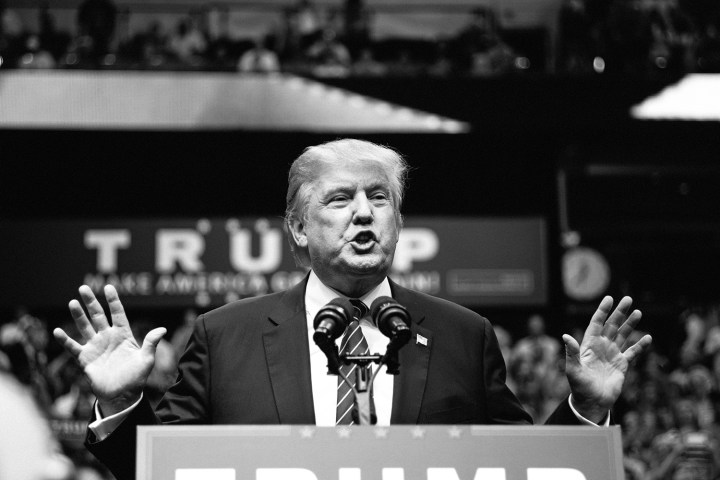
Net neutrality is one of those issues. Since becoming the official policy of the FCC in 2015 after several fits and starts, it has been a favorite target of Republican ire, based on the claim it hinders investment in broadband and internet. President-elect Donald Trump apparently isn’t a fan either, calling it a “top-down power grab” in a December 2014 tweet.
But as with many of Trump’s social media ramblings — especially on Twitter — the tweet is vague and open to interpretation. Since then, Trump has said little on the subject, but has made a vow to “eliminate our most intrusive regulations” a campaign promise.
Outgoing FCC chairman Tom Wheeler seemed to push back on Republican criticism of net neutrality last week during his final public speech at the Washington, D.C. headquarters of The Aspen Institute. “What some describe as ‘free market economics’ cannot mean simply freeing incumbents of their responsibilities,” he argued. “A hands-off approach to network oversight is more than a shift in direction, it is a decision to remove rights and move backward.”
Small business benefits most
Herein could like how net neutrality survives a Trump presidency. Trump himself has made a big deal out of promoting small business growth, and startup tech companies stand to gain the most from an official net neutrality position.
Upstart broadband providers might be best served by lobbying Trump directly to leave the regulations alone, or at least mostly intact. There’s some evidence that this might work, as the president-elect’s FCC transition team is not uniformly publicly opposed to the concept.
Republic Wireless co-founder David Morken was appointed to the transition team last month, and had earlier expressed concern about the direction of earlier FCC picks. “Traditional Republican telecom policy has favored incumbents who are heavily engaged in regulatory capture over innovators like us,” he told the Wall Street Journal in early December.
Reading between the lines
Indeed, if you attempt to analyze Trump’s 2014 net neutrality tweet, it seemed more directed out of a fear that President Obama would somehow silence his critics, rather than the true spirit of the policy itself. “Net neutrality is the Fairness Doctrine. Will target conservative media,” he quipped. That suggests a belief that it would be used in ways it was not intended, nor written for.
Net neutrality also has benefits for the bigger tech companies. Wheeler pointed in his speech to DirecTV Now as a prime example. AT&T is not put at a disadvantage when its streaming TV service is streamed over broadband lines owned by Comcast, Cox, or Charter — obvious competitors.
“One only has to remember the interconnection and porting debates that hindered the access of over-the-top video providers pre-Open Internet rule to appreciate the importance of an open Internet to everyone — even its opponents,” he added.
There are some big players in the fight to save net neutrality, which means it won’t go away easily. Netflix’s co-founder Reed Hastings is one of the biggest names, though publicly endorsed Hillary Clinton in the summer of 2016. Amazon too has been involved, but its founder and CEO Jeff Bezos has been one of Trump’s biggest critics in the tech world.
That means that if net neutrality is to survive in any form, support for it will need to come from the folks who Trump says he’s most focused on to “Make America Great Again,” namely small business.


